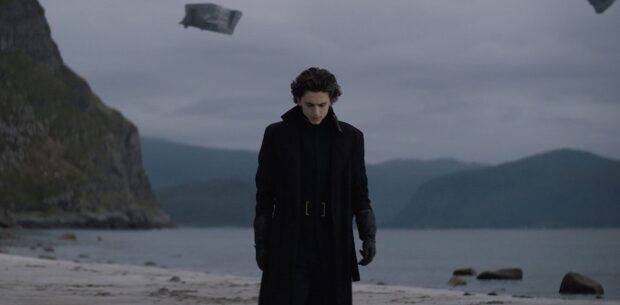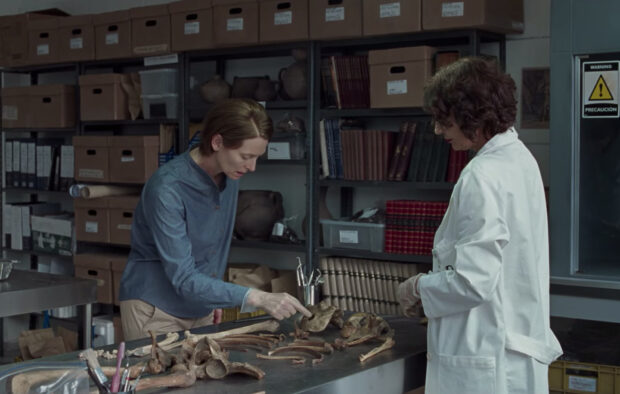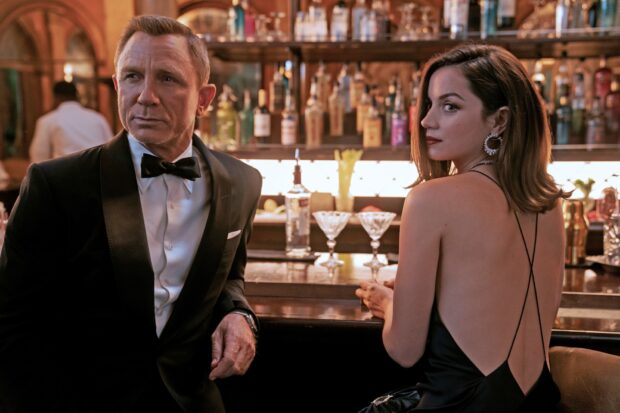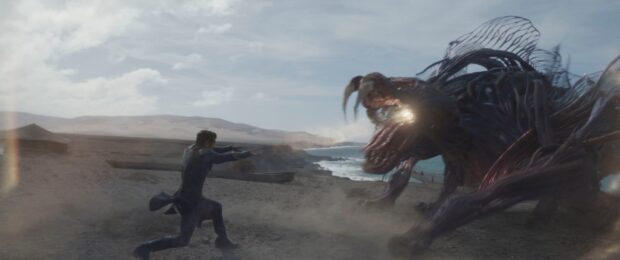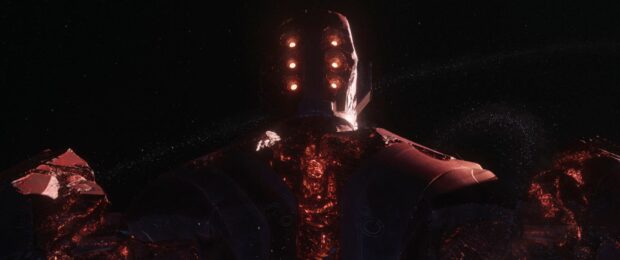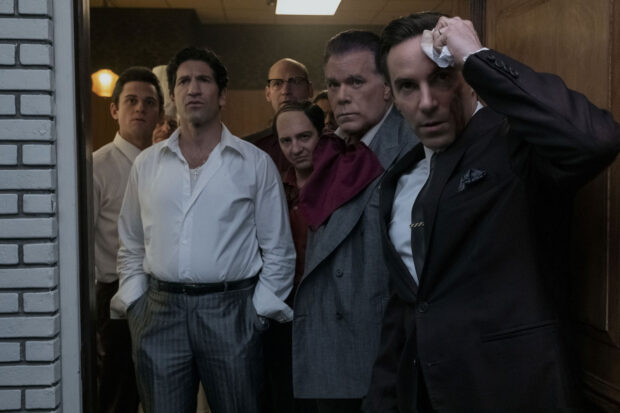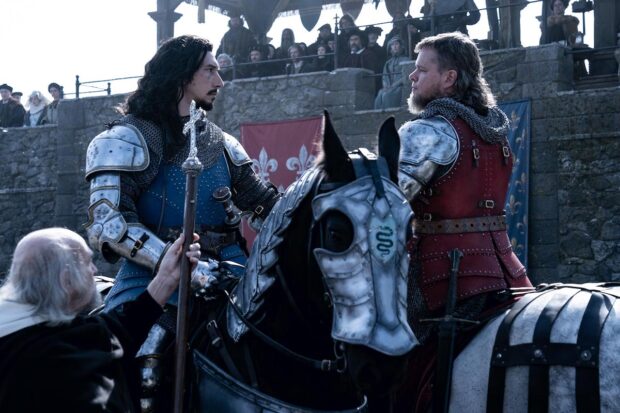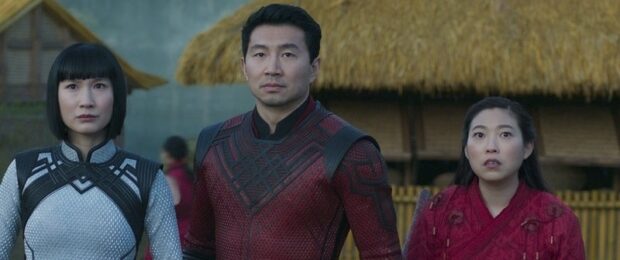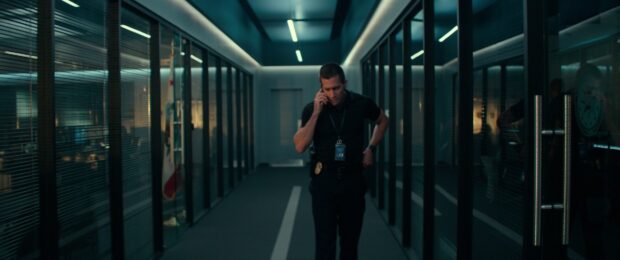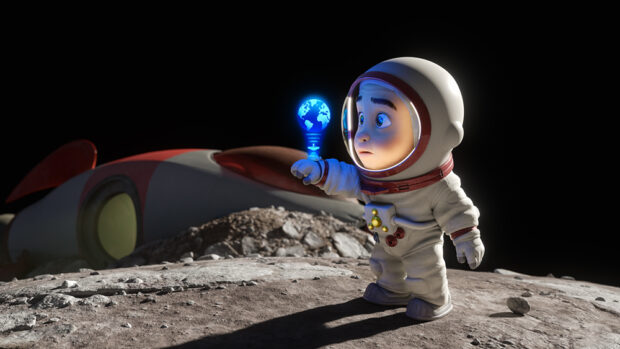Frank Herbert’s stories have been on the sci-fi fantasy landscape long enough that everyone at has at least an idea of Dune. Whether it’s the endless swathes of sand or just really big worms, it has influenced countless productions and stories. After Alejandro Jodorowsky’s failed attempt, David Lynch’s problematic feature, and an under-budgeted mini-series, the book was largely thought to be unfilmable. At least until now.
Herbert’s work is sometimes difficult to follow let alone summarise, but here goes nothing. Paul Atreides (Timothée Chalamet) moves to the desert planet of Arrakis when his family accepts control of it. The only source of the highly valuable resource known as spice, their arrival results in betrayal, assassination attempts, the prophecy of a religion known as the Bene Gesserit and an almost mystical force that drives Paul towards the native peoples known as the Fremen.
If Herbert’s novel was a kind of colonialist fantasy, crafting Paul as a white god-king to tribal peoples, then the opening to director Denis Villeneuve’s version aims to establish two things. Firstly, through the narrative voice of Chani (Zendaya) — who Paul sees in prophetic visions — this is a reclamation of the story from the perspective of its fictional native peoples. The other thing that’s apparent is that Villeneuve’s aesthetic vision is a staggeringly beautiful one.
Villenievue is no stranger to iconic sci-fi, having wowed audiences with Arrival and disappointed others with Blade Runner 2049. Yet from the moment DUNE opens, it’s clear there is something a bit different about this outing, carrying with it an almost mythical weight that filled this viewer with unexpected awe. It’s transportive, from the costume designs (that look more than a little Moebius inspired at times, keeping Jodorowsky’s dream alive) to the stunning vistas. Production designer Patrice Vermette achieved this through a combination of large scale sets and effects, crafting something truly immersive.
DUNE is still a deeply complicated outing, and it’s possible that if you haven’t got some familiarity with the source material you’ll find yourself a wee bit lost at times. The intricate balance between the machinations of Baron Vladimir Harkonnen (an almost unrecognisable Stellan Skarsgård) and the will of the Bene Gesserit are hard enough to follow on page let alone in a 156 minute film. It’s still quite the chore here, especially given it only covers part of the book, but when it’s this pretty you’re paying attention the whole time.
Film Twitter favourite Chalamet brings an excellent balance of boyishness and almost otherworldly grace to his Paul Atreides. Similarly, Rebecca Ferguson is a standout as the Lady Jessica, Paul’s Bene Gesserit mother and consort to Duke Leto (a bearded Oscar Isaac). It’s hard to get a bead on Zendaya’s take on Chani, as the film wraps up before he more significant scenes take place. (One review refers to being ‘Zendaya baited’ given her more visible presence in the publicity). One suspects she’ll be a major player in the next chapter.
Being in Australia, where the non-festival release date isn’t until December, we already knew that a Part 2 had been greenlit. While one could argue that this is only ‘half a film,’ being armed with the knowledge that this isn’t trying to cram all of Herbert’s tome into a single picture allows us some breathing room. Indeed, it allows us to simply sit back and absorb this as the spectacle that it is.
2021 | USA | DIRECTOR: Denis Villeneuve | WRITER: Jon Spaihts, Denis Villeneuve, Eric Roth | CAST: Timothée Chalamet, Rebecca Ferguson, Oscar Isaac, Josh Brolin, Stellan Skarsgård, Dave Bautista, Stephen McKinley Henderson, Zendaya, Chang Chen, Sharon Duncan-Brewster, Charlotte Rampling, Jason Momoa, Javier Bardem | DISTRIBUTOR: Universal Pictures (AUS), Warner Bros. Pictures (US) | RUNNING TIME: 156 minutes | RELEASE DATE: 8 November 2021 (SFF), 2 December 2021 (AUS), 21 October 2021 (US)

